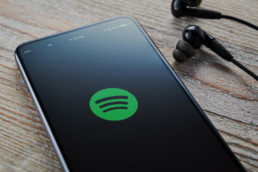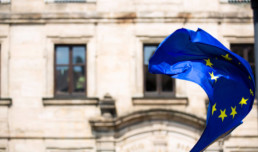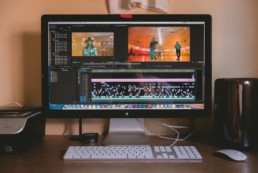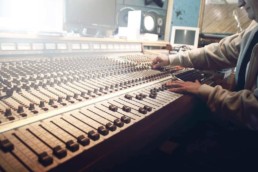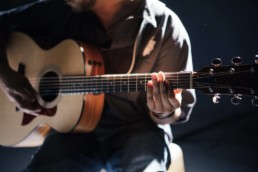Audible Magic Review: An Article on Live Streaming and the New European Copyright Directive
Whether you agree with the new European Copyright Directive or not, an objective of the Directive was to ‘clarify’ the definition and obligations of online content sharing service providers (“OCSSP”). One area which remains unclear, however, is the application of the Directive to ‘live streaming’ platforms – which in these times are becoming an increasingly significant category of media.
A new article by one of Europe’s leading copyright law experts, Dr. Eleonora Rosatii, examines live streaming services in the context of existing EU copyright law and the new 2019 EU Directive on Copyright.
Conclusion: Live Streaming Platforms Classified as OCSSPs
Dr. Rosati’s analysis concludes that live streaming platforms fall within the definition of an ‘online content sharing service provider’ under the new 2019 EU Directive on Copyright in the Digital Single Market (The Copyright Directive). These platforms can, therefore, be held directly liable for copyright infringement by making infringing streams, initiated by their users, available to the public.
In this respect, the Copyright Directive does not materially alter their position as it stood under EU law prior to the Directive being passed. What is different, is Article 17 provides live streaming platforms protection from liability, if they make best efforts to get licenses and take measures according to high industry standards to ensure the non-availability of infringing content via their platform.
Summary of Analysis
Given the huge spike in live streams of DJ sets during the COVID-19 pandemic, this timely article looks at live-streamed performances and notes that, if the performance had taken place in a public venue, the venue would have been required to obtain copyright licenses.
Dr. Rosati examines the situation of a hypothetical Platform X: DJs upload live streams of their performances which include the playing of copyright sound recordings. Platform X stores the material only for so long as necessary to enable the uploads to be transcoded and then streamed to an audience of frustrated would-be club-goers. Storage is therefore ephemeral, and no copies of the DJ sets are stored for future on-demand streams or downloads. The live streams are indexed by the platform, enabling would-be listeners to search and find streams or DJs they like.
The author explores the platform’s direct liability under the principles of existing EU law for making user-generated content available to the public. These principles were developed in successive cases decided by The Court of Justice of the European Union, culminating in the express finding of direct liability in the 2017 decision in Ziggo (the Pirate Bay case)(C-610/15). The precise nature and scope of this liability remains uncertain as evidenced by the number of CJEU referrals currently pending in this area (YouTube, C-682/18; Elsevier (C-683/18); Stichting Brein (C-442/19); and Puls 4 TV (C-500/19)).
Dr. Rosati says that it is not surprising that the Copyright Directive is characterized (in Recital 64) as a ‘clarification’ of existing law. She points out that where Article 17 goes beyond the pre-2019 EU copyright regime, it is not in the direct liability of OCSSPs for acts of communication or making available to the public, but in the regime that it establishes around that potential liability.
The article also examines whether a live streaming service can be considered an Online Content-Sharing Service Provider (OCSSP). Article 2(6) of The Copyright Directive defines an OCSSP as an online service, one of whose main purposes is “to store and give the public access” to large amounts of copyright content which it “organizes and promotes for profit-making purposes.” The issue is whether the ephemeral nature of the storage disqualifies the live streaming platform from being classified as an OCSSP. Rosati examines this question in-depth in the context of the Copyright Directive and the E-Commerce Directive and concludes:
“Live streaming providers that behave like Streaming Platform X in the example above are to be regarded as OCSSPs, even if the storage made of user-uploaded content is limited in time. What is relevant for the qualification of a provider as an OCSSP in principle is the purpose that it pursues (to store and give the public access to a large amount of protected subject matter uploaded by users) and, with that, the role that it performs (organization and promotion of such subject matter for profit-making purposes), not the duration (e.g., permanent or temporary storage of protected content) of the activity at hand.”
Dr Rosati concludes that the activities of the live streaming platforms are therefore governed by Article 17(4) of the Copyright Directive, and because of that, OCSSPs can protect themselves from liability, if they make efforts to obtain licenses for the content, and in the absence of any license, use best efforts, according to high industry standards, to prevent the availability of unlicensed content contained in the live streams. In conclusion, if live streaming platforms are classified as OCSSPs, the new Copyright Directive provides them a new ‘safe-harbour’ from liability provided they meet their other Article 17 obligations.
Commentary: Platforms Benefit from Safe Harbour as 2019 Copyright Directive OCSSP
The relevance of this article to live streaming platforms is clear and the implications are significant. Any live streaming service that gives public access to large amounts of copyright content uploaded by users, which it organizes and promotes for profit-making purposes, can be held directly liable for copyright infringement. This applies to both pre- and post- 2019 EU Copyright Directive regimes.
Prior to the Directive, even if a live streaming platform tried to get licenses and employed content recognition technologies to prevent unlicensed uploads, the platform would be liable for any infringing content that managed to get uploaded to its platform.
The new Copyright Directive changes that: The platform can now protect itself from direct liability by taking the steps prescribed in Article 17(4). These include using best efforts, according to high industry standards, to ensure the non-availability of content, in respect of which the copyright owner has provided relevant and necessary information.
_______________________________________________________________________________________________
[i] Associate Professor in Intellectual Property (IP) Law at Stockholm University; Guest Professor at CEIPI-Université de Strasbourg; Research Associate and Lecturer at EDHEC Business School; Associate at the Centre for Intellectual Property and Information Law at the University of Cambridge; Of Counsel at Bird & Bird; and Editor of the Journal of Intellectual Property Law & Practice (Oxford University Press, peer-reviewed). Dr. Rosati holds law degrees from the University of Florence, an LLM from the University of Cambridge, and PhD from the European University Institute.
Audible Magic Corporation Review is issued for informational purposes only and is not intended to be construed or used as general legal advice. Please contact the author(s) or your Audible Magic Corporation contact if you have questions regarding the currency of this information.
For more than 20 years, Audible Magic has innovated solutions to identify content, manage rights, and monetize media. Audible Magic’s Emmy-winning automatic content recognition (ACR) technology powers billions of transactions monthly. The Silicon Valley pioneer is the trusted intermediary among rights holders (including labels, studios, distributors, publishers, and collectives) and major platforms.
Audible Magic is a service mark and trade name of Audible Magic Corporation ©2020 Audible Magic Corporation. All rights reserved.
Plan Now
It is important to start planning now on how to meet the requirements and understand the impact of the Directive on your business.
Below are some resources to help you understand the Directive and how it may impact your business.
- Take our A17 Assessment Survey for platforms to assess if the Directive affects your company and then assess your readiness to comply
- Understand how small social networks will be impacted
- Read the full text of the Directive
- And more is available on our Article 17 page as well as in our blog section
Audible Magic Enables Monetization of UGC for Social Networks
New Platform Simplifies Music Licensing to Grow Market
Los Gatos, Calif. (Sept. 10, 2019) – Audible Magic, the leading provider of content identification solutions, announced its UGC Music Rights Platform (UMRP), which simplifies the licensing and administration of music rights by social media networks that enable uploading of audiovisual content. Audible Magic’s UMRP encourages greater use of licensed music, which substantially improves user experiences while creating new revenue streams for both social networks and music industry players.
Licensing music for use in user-generated content (UGC) requires substantial investments in obtaining and managing licenses, which discourages many businesses from undertaking the effort. Audible Magic’s UMRP offers a turnkey solution for social networks, as it identifies copyrighted music, clears that music based on directly negotiated licenses, and provides the back-office services for royalty payment and reporting to licensors.
Audible Magic UMRP consists of a set of new plug-and-play services for both social networks and rightsholders. For record labels and music publishers, UMRP provides an enhanced license registration process combined with a content management system and usage reporting dashboard. These services provide the mechanisms to dramatically lower the cost of licensing and managing rights across multiple social networks.
“This new platform leverages our strength in content identification technology, coupled with the trust we’ve built with rights holders,” said Vance Ikezoye, president and chief executive officer of Audible Magic. “We have spent the past three years working closely with the music industry to build a system that simplifies the use of music in UGC. This has been a long-standing issue for our customers, and we are excited to offer a fully featured solution to address it.”
The various services that make up the UMRP begin to roll out in Q4 of this year and into Q1 of 2020.
About Audible Magic
For more than 20 years, Audible Magic has innovated solutions to identify content, manage rights, and monetize media. Audible Magic’s Emmy-winning automatic content recognition (ACR) technology powers billions of transactions monthly. The Silicon Valley pioneer is the trusted intermediary among rightsholders (including labels, studios, distributors, publishers, and collectives) and major platforms.
Contact
Adriana Saldaña
Sterling Communications
[email protected]
+1 408-395-5500
Rolling Stone: Fake Streams Could Be Costing Artists $300 Million a Year
The easiest version of streaming manipulation to stop might be the most obvious one: fake albums. The distribution platforms the Orchard, CD Baby and Distrokid all recently partnered with Audible Magic, which bills itself as “the leader in automated content identification of audio and visual content,” to ensure that music they push out to streaming services is legitimate. “There’s a small minority of bad actors trying to game the system,” Audible Magic CEO Vance Ikezoye is quoted in Rolling Stone.
EU in Final Stages of Clarifying Copyright Law for User Generated Content Platforms
The European Union is nearing finalization of significant changes to the copyright law, which will increase the legal obligations of websites and apps that allow sharing of user-uploaded content, often referred to as UGC or user-generated content. While it is still progressing through the legislative process, it seems likely some form of this legislation will become law. The three current versions approved by separate arms of the EU government share a few common provisions.
If it becomes law, it will likely apply to websites and app platforms that meet four basic conditions:
First, the platform allows the storing and distribution of UGC that may include copyright content, even if use is just incidental. If users can upload content with embedded clips of music or video as part of their content, this provision applies.
Second, the platform promotes or optimizes content for commercial purposes. Commercial purposes would include the generation of income through advertising, subscriptions, app and in-app purchases, and other creative income producing schemes, or attracting users to the service to increase the capital value of the platform.
Third, the platform is located in the EU or if it is located outside of the EU, is it accessible by users from any of the 28 countries currently in the EU. That means if the platform is based in the US but allows users in the EU to access it, this law applies.
Fourth, the platform is above a certain size, currently proposed to be more than 50 employees or annual revenues in excess of €10 million.
Some exceptions to the type of platforms covered are expected. For example, cloud storage services that are for individual use. Other examples include not-for-profit encyclopedia services (such as Wikipedia), open source software platforms (such as GitHub) and online markets whose main activity is selling of physical goods (such as eBay).
If a platform falls under these qualifying conditions of the directive, then what? The company will be required to obtain licenses from copyright owners or must take preventive measures to ensure that copyright works are not available through their service. Since there are inconsistencies between the three versions, it’s not yet clear what will qualify as a preventive requirement. However, it is expected that copyright owners will be obligated to specify what content they want protected.
So where do things go from here?
A trilogue process is currently underway by the EU to reconcile the three different approved versions. A compromise version is expected to be finalized before the end of 2018 and approved in the first quarter of 2019. Once approved, there is a two-year period before it becomes law in every EU member state.
Audible Magic Honored With an Emmy® Award for Content Identification Technology
Audible Magic Honored with an Emmy® Award for the Company's Content Identification Technology
Los Gatos, CA (August 30, 2017) — Audible Magic has been recognized as one of a select few to be honored with the Emmy® Award for Technology and Engineering in 2017 by the National Academy of Television Arts and Sciences (NATAS). The internationally-renowned Emmy® Award, granted by NATAS and chosen each year by dozens of industry experts and peers, recognizes excellence and creativity; and represents the highest achievement in the television industry.
Audible Magic was recognized by the NATAS for the company's more than 18 years of pioneering work in the development and use of content identification technologies to protect content value and copyright. The company's content recognition solutions, which are based on its patented digital fingerprinting technology, quickly and cost-effectively detect authorized and unauthorized uses of live and pre-recorded television content shared by consumers on social media and live streaming platforms.
"The Academy is pleased to highlight Audible Magic's contributions to the television industry addressing the need to respect television media copyrights on the Internet," said Robert P. Seidel, Chairman of the Technology & Engineering Committee of the NATAS. "Audible Magic's technology has had a significant positive impact in protecting the value of television content."
"Recognition by the NATAS and to be honored with an Emmy® Award is not only testimony to the extraordinary contribution of our technology but in addition, the entire ecosystem we've created," said Vance Ikezoye, Founder and CEO, Audible Magic. "Audible Magic has over 18 years developed industry-advancing technologies, resulting in over 65 patents covering a broad range of inventions in content identification."
This year’s recipients will be honored at the 69th Annual Technology & Engineering Emmy® Awards that will take place in partnership with the NAB (National Association of Broadcasters) Show/conference on Sunday, April 8, 2018 in Las Vegas, NV.
About Audible Magic
Audible Magic provides technologies that make media devices, apps and networks content aware. The company is the trusted leader in digital fingerprinting techniques that recognize audio and video content in all forms across radio and television broadcasts, Internet streams, cable and satellite transmissions, stored digital files, and on consumer devices such as smart TVs, set-top boxes, smart phones, tablets, and other appliances. Since its founding in 1999, the company has been awarded more than 65 patents. Currently Audible Magic has worked with more than 200 customers and thousands of content partners in technology, entertainment and media industries.
About The National Academy of Television Arts & Sciences
The National Academy of Television Arts & Sciences (NATAS) is a service organization dedicated to the advancement of the arts and sciences of television and the promotion of creative leadership for artistic, educational and technical achievements within the television industry. It recognizes excellence in television with the coveted Emmy® Award for News & Documentary, Sports, Daytime Entertainment, Daytime Creative Arts & Entertainment, Public & Community Service, and Technology & Engineering. NATAS membership consists of over 15,000 broadcast and media professionals represented in 19 regional chapters across the country. Beyond awards, NATAS has extensive educational programs including Regional Student Television and its Student Award for Excellence for outstanding journalistic work by high school students, as well as scholarships, publications, and major activities for both industry professionals and the viewing public. For more information, please visit the website at www.emmyonline.tvw.emmyonline.tv
Audible Magic Introduces Upgraded DMCA Tool for Colleges and Universities
CopySense® Appliance 10G Automates DMCA Notice Reduction for Campus IT Networks
Los Gatos, Calif., February 3, 2015--(Business Wire)--Audible Magic, the leading provider of enterprise-class content recognition solutions announced the CopySense® Network Appliance 10G. This is a new version of Audible Magic’s CopySense Appliance that now accommodates a 10 GB network interface.
The CopySense Appliance is popular with college and university IT organizations for its ability to reduce workload and expenses related to Digital Millennium Copyright Act (DMCA) takedown notices. It also automates actions that educate students and other campus network users toward good digital citizenship with regard to the use and sharing of copyrighted content.
With a CopySense Appliance monitoring the campus network, users that engage peer-to-peer (P2P) networks to download or share copyrighted media content get automatically redirected to information on campus network use policies. These responses are only initiated when the user attempts copyright-infringing, public sharing of media content. Sharing of non-copyrighted files on P2P networks is ignored, thus allowing the campus to embrace and allow P2P file sharing for non-infringing uses.
As users become educated and stop participating in public sharing of copyrighted media, the number of DMCA infractions is reduced. The institution then spends less resource following up on takedown notices.
“The CopySense Appliance has helped top educational institutions large and small across the United States reduce their DMCA takedown notice workload,” said Vance Ikezoye, Audible Magic CEO. “The latest 10G version helps them keep up with their growing network bandwidth requirements.”
Visit Audible Magic’s website for more information on the CopySense Network Appliance.
Audible Magic is the trusted leader in automatic content recognition (ACR) fingerprinting technologies. The company offers a broad range of hosted solutions as well as hardware and software products that identify audio and video content, synchronize actions between media devices, trigger user interactivity and generate usage reporting. Audible Magic’s customers and partners span education, technology and media industries and include industry leaders such as Dailymotion, Deluxe Media, Ensequence, Sling Media, Sony Music and SoundCloud.
Audible Magic Receives Its 30th Patent Award
Latest Patents Add to Portfolio in the Areas of Audio and Video Content Recognition and Related Services Optimization
LOS GATOS, Calif.--(BUSINESS WIRE)--Audible Magic, the leading provider of enterprise-class automatic content recognition (ACR) solutions announced that the company was recently issued three new patents. This brings the total patents awarded to the company to 30 overall in areas such as digital fingerprint-based media detection technology, detection of content on media-playing devices, identification of content flow across networks, and approaches to media identification information systems performance.
“Audible Magic’s intellectual property portfolio, plus our experience in massively scalable content identification and information services, makes the company’s offerings a preferred choice among the largest names in media and technology industries”
The recently-issued patents include:
- European Patent EP 1 490 767 B1, for copyright detection and protection system method regarding digital data processing. This patent involves identifying, reporting, and/or protecting digital works from unauthorized transmission and/or copying, such as over networks or network segments connected to the Internet.
- U.S. patent 8,732,858 B2, for identifying digital data content; a computing system selects data from an unknown work and detects each event. It determines an event metric between each successive event and generates a list of metrics between the events, comparing event metrics for the unknown work to those of a known work, to determine if the unknown work is a copy of the known work.
- U.S. patent 8,645,279 B2, in copyright detection and protection system method, for detecting against unauthorized transmission of digital works.
The generation of patents by this privately-funded company has enabled Audible Magic to establish itself as the leader in ACR solutions. “Audible Magic’s intellectual property portfolio, plus our experience in massively scalable content identification and information services, makes the company’s offerings a preferred choice among the largest names in media and technology industries,” said Vance Ikezoye, CEO. Visit Audible Magic’s website for the full patent documents.
Audible Magic is the trusted leader in automatic content recognition (ACR) fingerprinting technologies. The company offers a broad range of hosted solutions as well as hardware and software products that identify audio and video content, synchronize actions between media devices, trigger user interactivity, generate usage reporting and activate content monetization. Audible Magic’s customers and partners span technology, entertainment and media industries and include industry leaders such as Dailymotion, Ensequence, Sling Media, Sony Music and SoundCloud.
Crunch Digital Announces RegistryID™ and Strategic Partnership With Audible Magic to Streamline Licensing and Reporting to Record Labels and Music Publishers
Crunch Digital Forms Strategic Partnership with Audible Magic
Los Angeles, CA, October 28, 2014 - Today Crunch Digital, the data management and reporting service that bridges digital rights owners with content licensees, is announcing RegistryID™, their new system that will streamline music licensing and reporting. As an integral part of the RegistryID system, Crunch Digital has entered a strategic partnership with Audible Magic, the leader in automated content recognition (ACR) solutions for copyrighted content.
Matching music to copyright ownership data affects many digital services, apps and games. Finding the correct copyright owners and verifying licensing can become a monumental barrier for digital services. Over the last four years, Crunch Digital developed one of the most comprehensive registries for sound recording and musical composition metadata in the world. The release of RegistryID™, expected early next year, will enable distributors to verify licensing rights with music publishers for their content worldwide, ensuring that proper permissions have been obtained before the work is made available on their platform. RegistryID™ will be integrated with Crunch Digital's existing data management and reporting solutions.
When content is added to a provider's platform, RegistryID will use Audible Magic's fingerprinting solution to match the content against registered sound recordings. If a match is found, RegistryID will then associate registered content with an underlying musical composition and its owners or administrators. Then the system can determine if a license is in effect for the musical composition to ultimately "block" or "allow" use on the platform based on licensing terms specified by the provider.
"Crunch Digital's RegistryID addresses a problem we have seen for years in the digital marketplace," said Vance Ikezoye, Audible Magic's CEO. "Being able to match sound recordings to the underlying composition and verifying licenses can certainly enable access to more music for many delivery platforms."
"We are excited to work with Audible Magic to enable our RegistryID," said Keith Bernstein, founder of Crunch Digital. "Their fingerprinting technology allows us to deliver fast, robust responses to our customers so that they can focus on the customer experience without worrying about copyright issues."
About Audible Magic Audible Magic is the trusted leader in automatic content recognition (ACR) fingerprinting technologies. The company offers a broad range of hosted solutions as well as hardware and software products that identify audio and video content, synchronize actions between media devices, trigger user interactivity, generate usage reporting and activate content monetization. Audible Magic's customers and partners span technology, entertainment and media industries.
About Crunch Digital Crunch Digital™ is an independent technology firm whose mission is to eliminate the barriers of licensing and payments in the media & entertainment marketplace, fueling better revenue flow, improving business intelligence, and reducing operating costs for content licensees and content owners. Crunch Digital manages data flow for content licensees - digital service providers, multi-channel networks, game companies, app developers and mobile carriers - including royalty reporting for direct licenses. Crunch Digital also services content owners - including record labels, music publishers, audio book publishers, film & television studios and game publishers.
What’s Going On With Twitch and Audible Magic?
During the last few days the Internet has been buzzing with comments about Audible Magic as a service provider to Twitch.tv. Some of these comments contain rumors or misinformation, so we’ll mention a few things in this post to raise the level of information out there.
What happened?
Twitch turned on a new feature that aids its site in protecting copyright owners. When Twitch users' VOD videos contain copyrighted media content that has been flagged by the copyright owner as a “do not share” item, Twitch responds with an action to mask a portion of audio.
What’s Audible Magic’s part in this?
Twitch contracted Audible Magic to provide a content matching service. Twitch provides Audible Magic a sample of audio content and Audible Magic reports if a match is found in a database of submitted works. Matches, plus the content owner’s specified business rules, are reported to Twitch, and Twitch handles all actions from there. Audible Magic performs no blocking of content. Audible Magic is simply an information provider.
What’s in Audible Magic’s database?
Audio and video media copyright owners or their licensed agents submit “fingerprints” of media works, enabling those works to be identified by Audible Magic matching services. The copyright owners also submit business rules to associate with those works. If a copyright owner does not want their work shared freely on individual social media sites, they provide business rules specifying that. Copyright owners can also submit “allow” rules by title. Each month, Audible Magic receives on average 250,000 new media titles, including each title’s business rules, submitted by copyright owners to Audible Magic’s database.
Does Audible Magic work for the copyright holders?
Audible Magic receives no revenue from any media copyright owner for registering content in its database or for providing a matching service. Our paying customers are companies, like Twitch, that are looking for matching services to automate a part of their process or workflow.
What if Audible Magic incorrectly reports a match?
We believe Audible Magic offers the most highly trusted matching service available. We treat any match error as a bug, and we aggressively pursue prompt resolution of all bugs. We’re very serious about getting it right.
What’s next?
Audible Magic is devoted to continual improvement of its products and services. We work closely with our clients and partners to ensure we offer the best possible solutions. We also proactively evolve with our customers and their user’s needs to improve solution offerings. We are always open to feedback about how our services can be enhanced or what we can do to help our customers deliver great products.
CopySense® Express Service Introduced by Audible Magic
Most Affordable P2P Compliance Solution Targeted at Community Colleges
LOS GATOS, CA , California — (Marketwire - May 25, 2010) —
Audible Magic Corporation has expanded its CopySense family of P2P compliance and educational solutions with a service specifically aimed at the needs of community colleges and other institutions with smaller networks and limited budgets. The CopySense Express service detects file sharing of copyrighted works as they occur and immediately informs the student that his/her unauthorized use of the network has been detected, leveraging the teachable moment.This service helps community colleges meet the mandates required by the Higher Education Opportunity Act (HEOA) of 2008 with a low-cost solution.Read more



